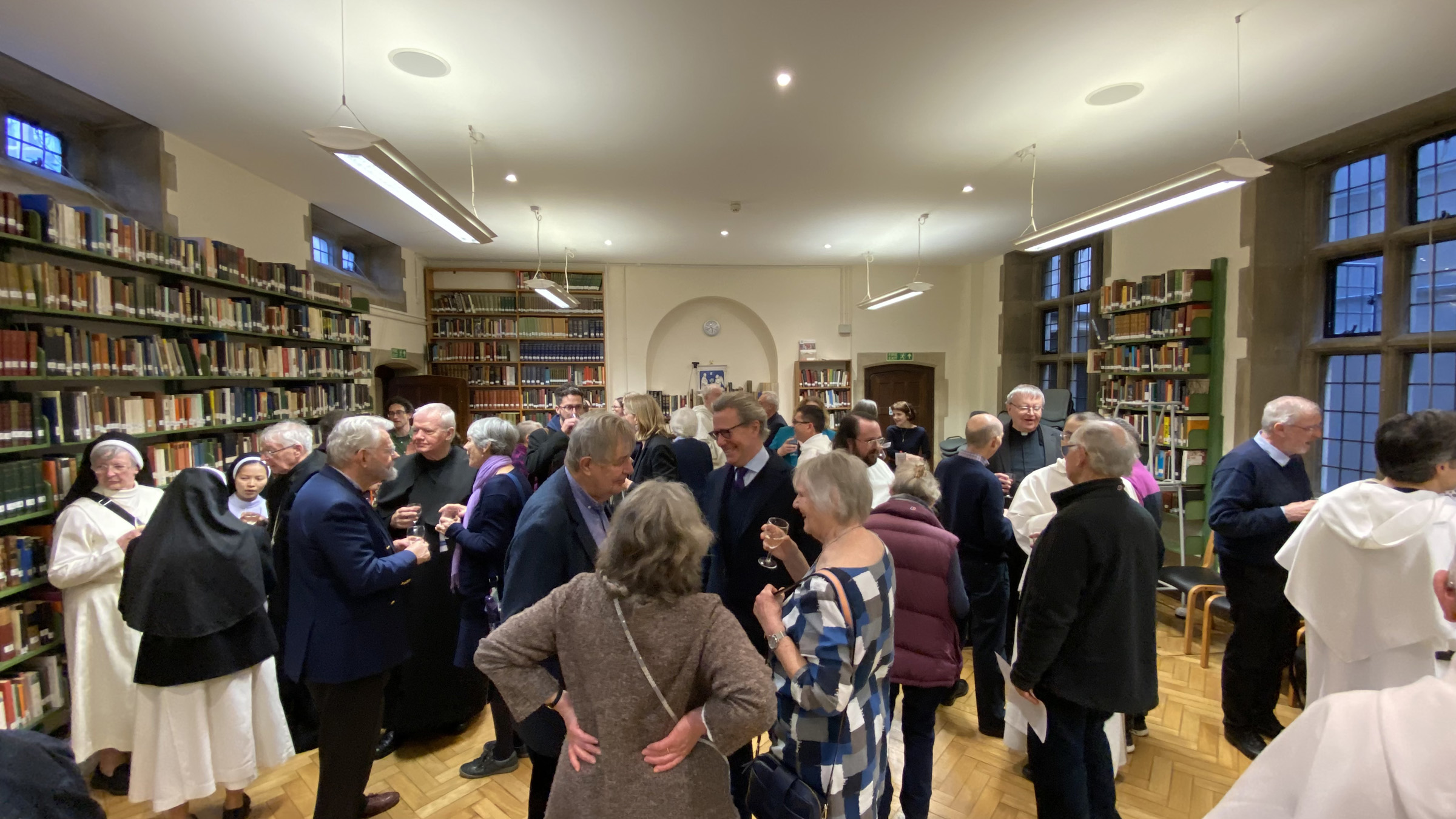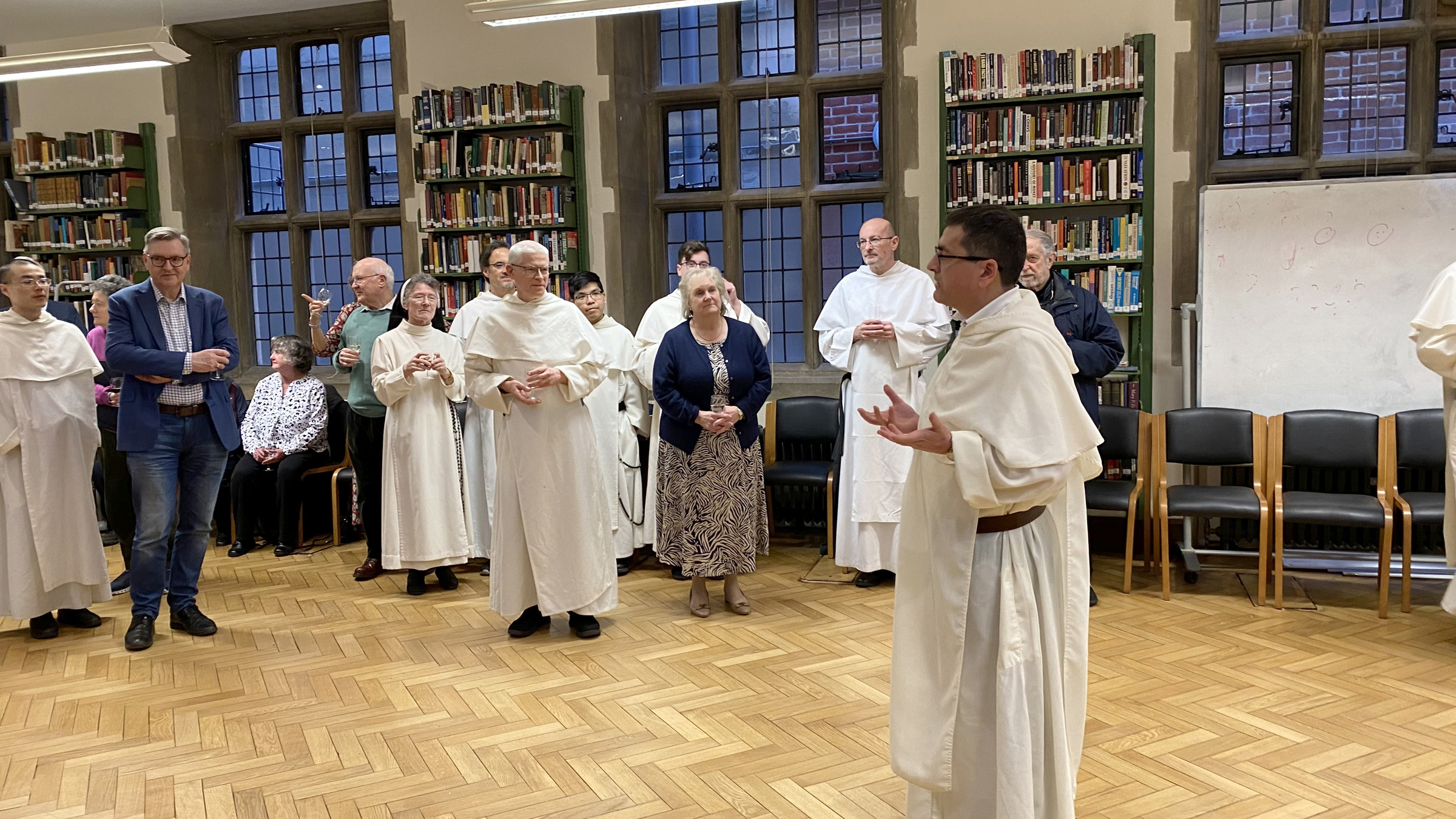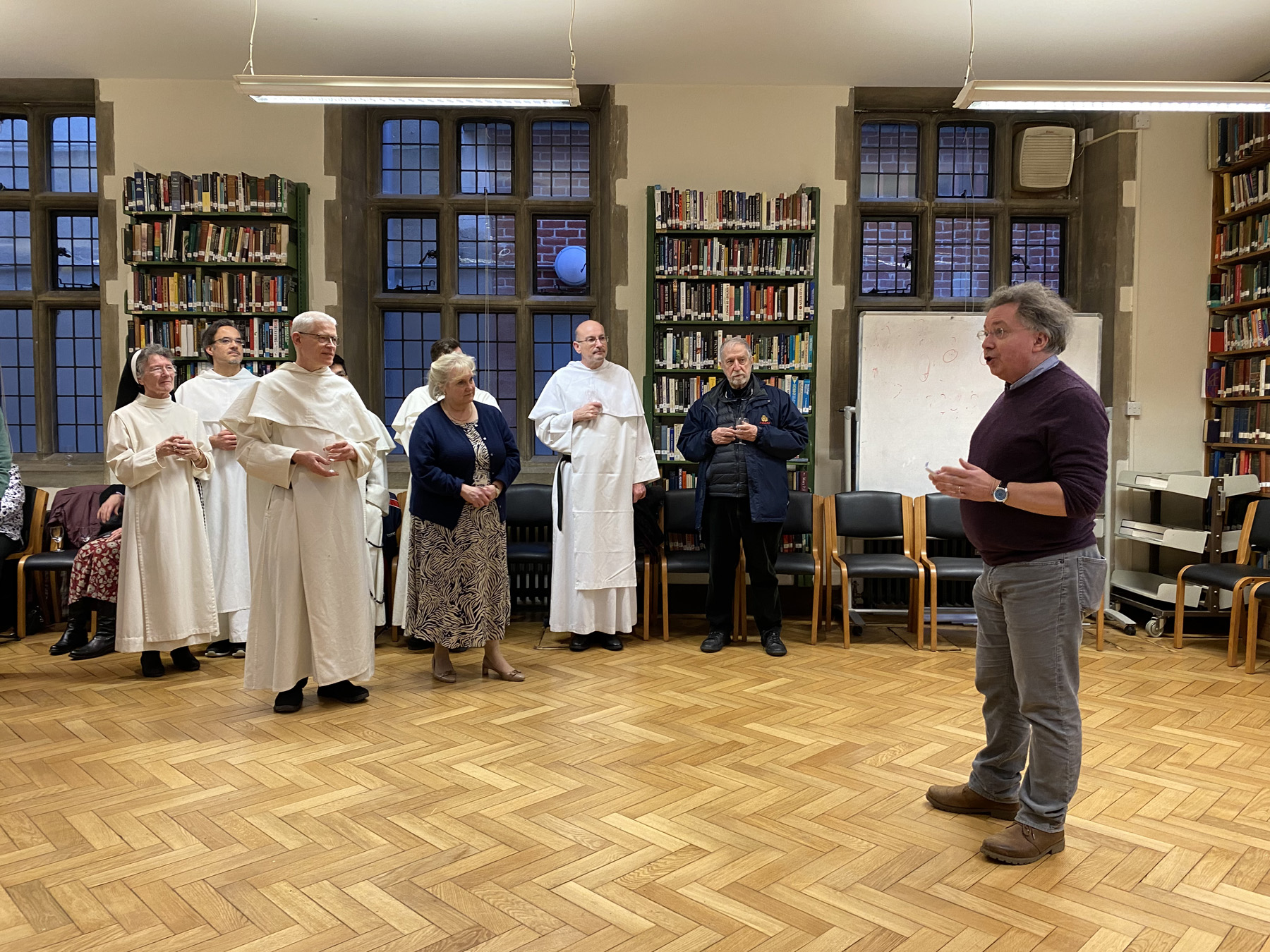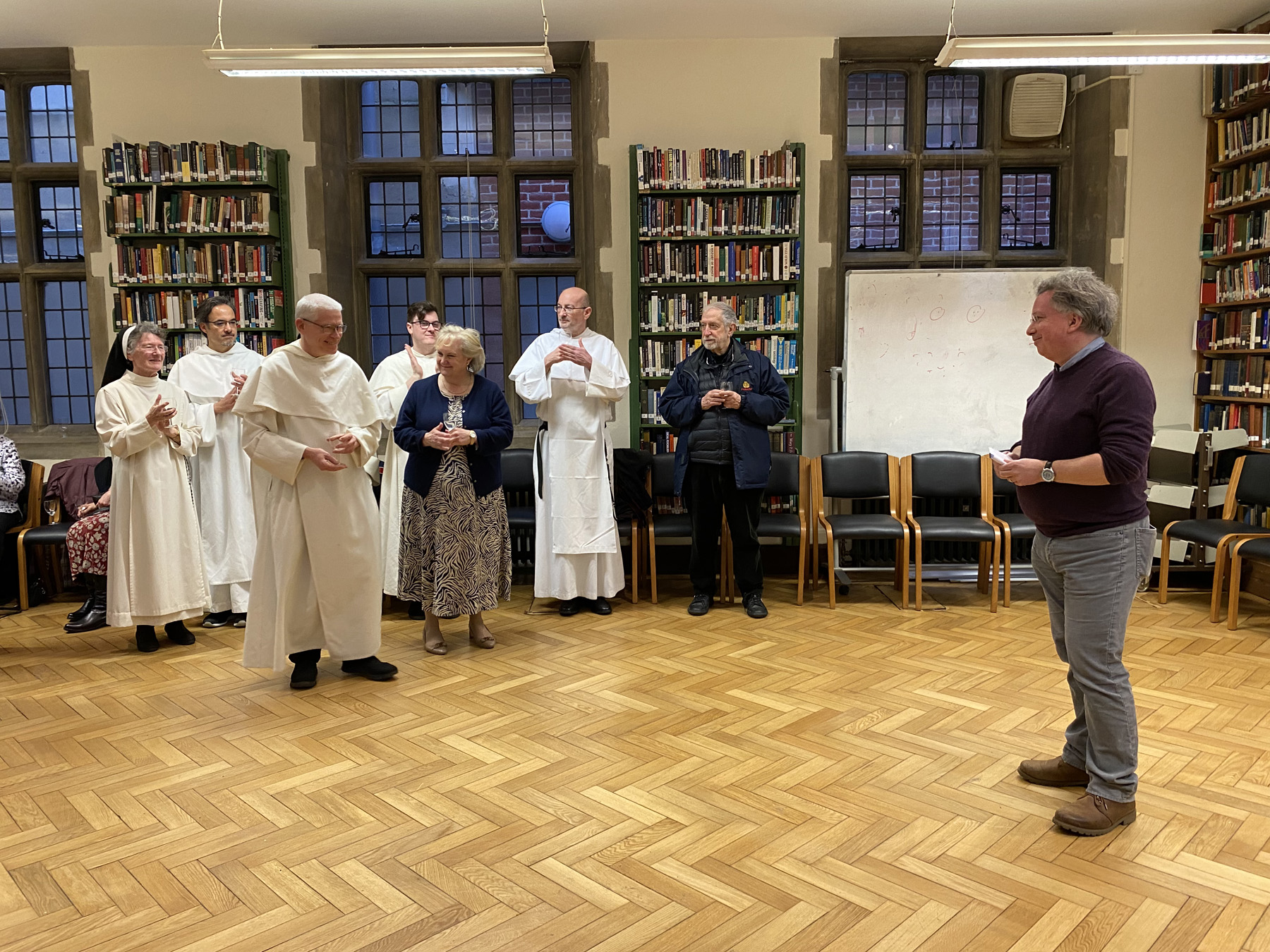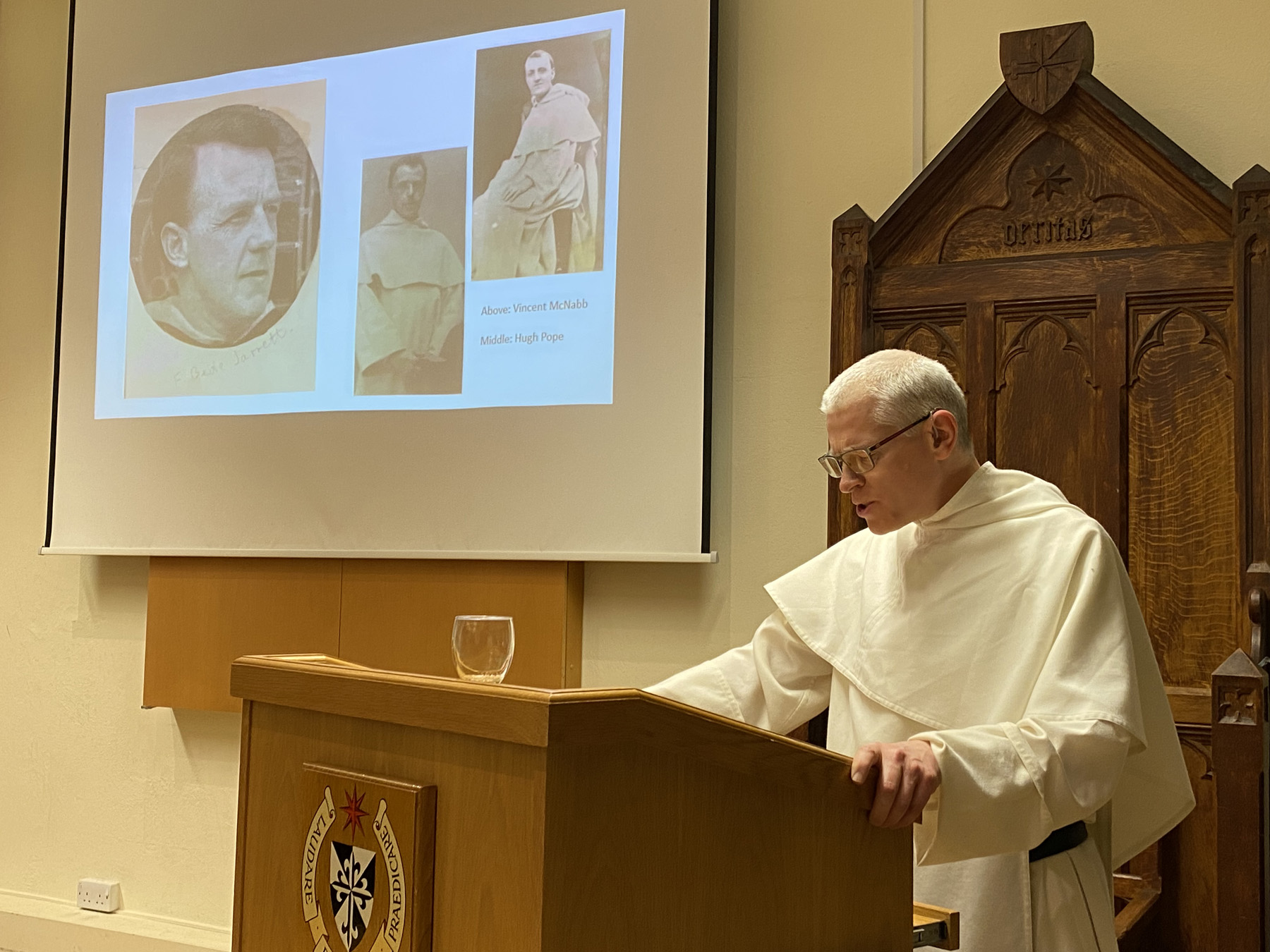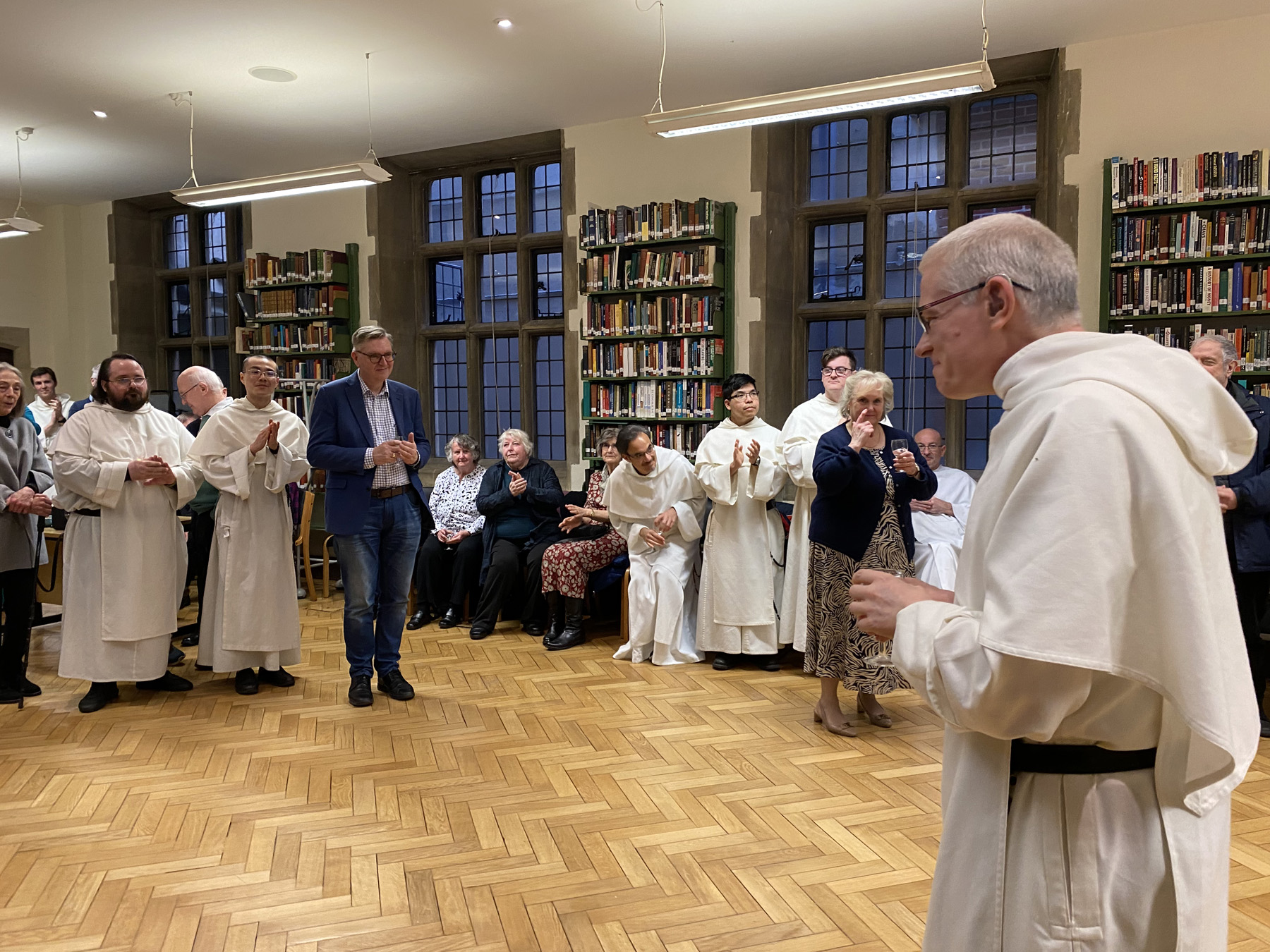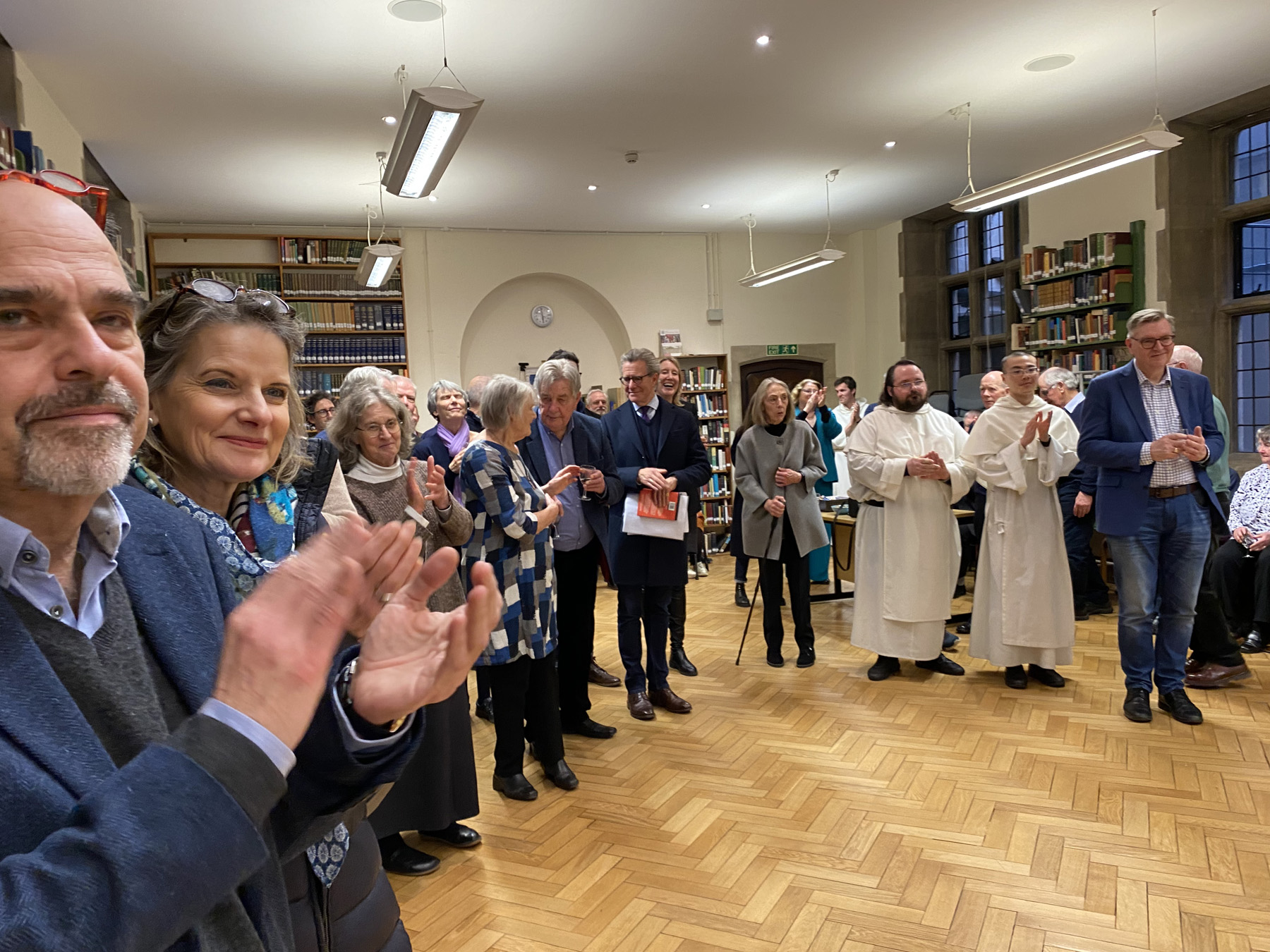New History of the English Province: Book Launch
23rd March 2023
On Wednesday 22 March 2023, the new history of the Dominicans by Fr Richard Finn OP, The Dominicans in the British Isles and Beyond, was launched to an appreciative crowd at Blackfriars, Oxford. This new work was commissioned for the 800th anniversary of the Province in 2021, and involved detailed research into primary sources, being able in this way to correct, clarify and build upon previous histories by Dominicans from the last century.
Addresses
At the launch, addresses were made by the Prior Provincial, Fr Martin Ganeri; by the editor, Alex Wright of Cambridge University Press; and by the author himself. These are summarised below.
Fr Martin Ganeri:
The Province thanks you so much for this book. It is a treasure for the Province as it celebrates its 800th Jubilee year. When we thought of how to celebrate the Jubilee, we wanted to have a number of publications which could then be treasured in the years to come. The prayer book was one. This is the second and will enable us to celebrate the past of our Province, as well as serve as an inspiration for the present and future. The launch of this book brings then our Jubilee celebration to its fitting completion. This book is also a treasure for us, in terms of how precious it is when we think of what it meant for you to produce it. Shortly after you were asked to undertake this work, you became seriously unwell and remained so for a number of years, but you persisted with this book despite everything. The hidden text, therefore, behind this book is your determination to live, your commitment to your religious life as a friar and to your service to the Province. For both these reasons we thank you for the gift of this book for us to treasure.
Mr Alex Wright, Senior Executive Publisher & Head of Humanities Books, CUP:
It is so nice to be back at Blackfriars, of which I have very happy memories. it’s a particular pleasure to launch and celebrate Richard’s wonderful book, a really splendid history of the Dominicans in – as the title has it – ‘the British Isles and beyond’.
For my own part, I feel a special personal connection to the English Province. When as an undergraduate I was reading theology in Cambridge, I was lucky enough to be supervised by David Sanders, whose nuanced insights were never less than transformative and illuminating. It was David who first introduced me to liberation theology, and later, over several glasses of red wine, also to Tim Radcliffe. When I moved to CUP as a young editor of religion in the late ‘80s, I got to work with Aidan Nichols, whose book Theology in the Russian Diaspora further exemplifies the outstanding intellectual range and erudition of the English Dominicans. Later on, I was fortunate once again to be able to collaborate closely with Fergus Kerr on a whole variety of things: including his super book Immortal Longings, published at SPCK, and on After Aquinas, another winner, which I commissioned at Blackwell.
So for me the English Province has been a sort of red thread running through my own commissioning and intellectual life. For that reason, I’m all the more thrilled to have been able to work with Richard on his book.
it seems to me to be a book that exemplifies all that we want to do in Humanities Books in 2023. It’s ambitious in its range and scope, being a complete history of its subject – the first since, and a much fuller one at that, Bede Jarrett’s of a hundred years ago. It’s consistently readable and informative, full of local colour and fascinating characters. We read of Dominican nuns and apostolic sisters. Of medieval resilience. Of collapse and Babylonian exile. Of revival and expansion. Of missions to the Caribbean and South Africa. Of reaction to Vatican 2. Of New Blackfriars and of key figures like Conrad Pepler, Herbert McCabe, Tim and Fergus, and many others besides (some of whom are here with us in this room this evening). The book fills a real and vital gap in the literature and the records. I knew of Richard already as one of our classical luminaries, and here he has brought all his scholarly skills and talents to bear on a subject closer to home – not the distant past, this time, but rather a past that feeds into a vibrant present, where the Province and Order go from strength to strength and can I hope look forward at the very least to another eight hundred years of remarkable achievement. I think this book does a wonderful job of showing just how important the English Province has been in the wider religious and cultural history of these islands, as well as overseas.
So, Richard, I congratulate you on a big, big achievement. It has been a great pleasure to work with you, and I wish the book ‘godspeed’ and the huge success it absolutely deserves.
Fr Richard Finn:
It is a century since Fr Bede Jarrett and his collaborators wrote a history of the English Dominican Province. My aim in writing a new academic history was not only to bring the story up-to-date, but to offer a critical reassessment of earlier accounts. For the medieval period, that meant not only drawing on recent archaeology, but shifting the frame away from a narrow view of what happened in England to a wider perspective on the Province as a multinational corporation. For the long period between the re-foundation of the Province by Fr Philip (later Cardinal) Howard in the 1650s, and our flight from the Low Countries in 1794 after the French invasions, a return to primary sources has enabled a less hagiographical portrait of Howard; it has also highlighted the role of Fr Thomas Worthington, four times Provincial in the first half of the 18th century.
Studying the second re-foundation of the Province, in the mid-19th century, has exploded the myth of a voluntary surrender of the Woodchester mission by the Passionists to the Dominicans, and emphasised the debt owed to the Master-General, Fr Jandel, as well as to the Irish, Italian, and French friars whom he sent to strengthen a noviciate of strict observance there. For the 20th century, the challenge was to see both how Bede Jarrett and his allies developed the intellectual apostolate of the Province, but also what that cost the brethren when the Province was unwilling to cut back on other commitments in Britain, the Caribbean and Southern Africa. The new history also underscores how far the Province’s survival and renewal in the 1960s and 1970s depended on men such as Frs Ian Hislop, Fergus Kerr, Simon Tugwell and Timothy Radcliffe.
Attention has been given to the lay men and women in every age whose support financed the English Dominican mission, and to those men who joined but later left the Province. The aim has been to note not just the Province’s achievements but also the sufferings that frequently accompanied them, whether illness on Grenada or the prolonged anxiety experienced by some in fundraising and managing debt. Fr Louis Gonin, Prior and Novice Master at Woodchester, and later Archbishop of the Port of Spain, once told the friars they should have the back of a donkey and the stomach of a pig. Resilience was essential for their work.
Piers the Plowman’s Crede, a satire from the end of the 14th century, presents readers with an obese Dominican friar ‘with a face as fat as a full bladder’ seated on a bench in the refectory and puffed up with pride in the Order’s men of learning and many bishops. It’s my hope that this new history won’t puff us up with pride but give us a realistic sense of what flesh and blood can do, with others’ help and support, by the grace of God.

